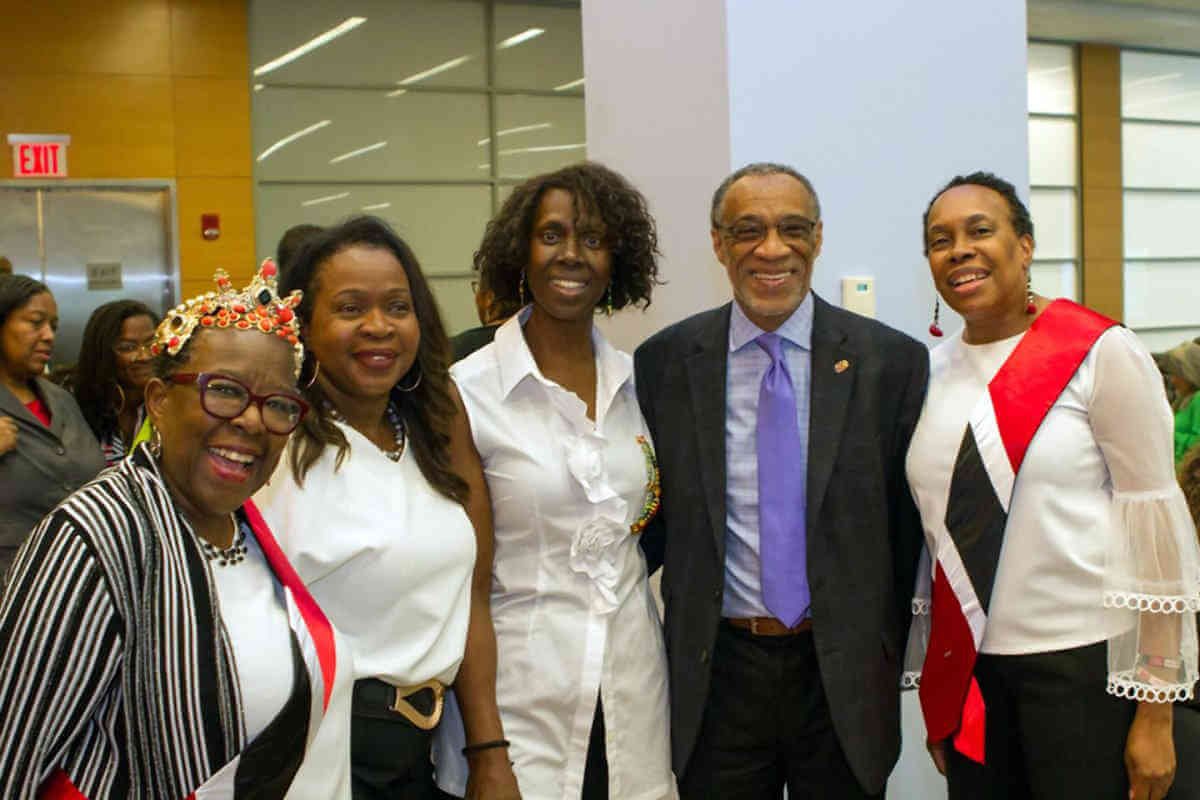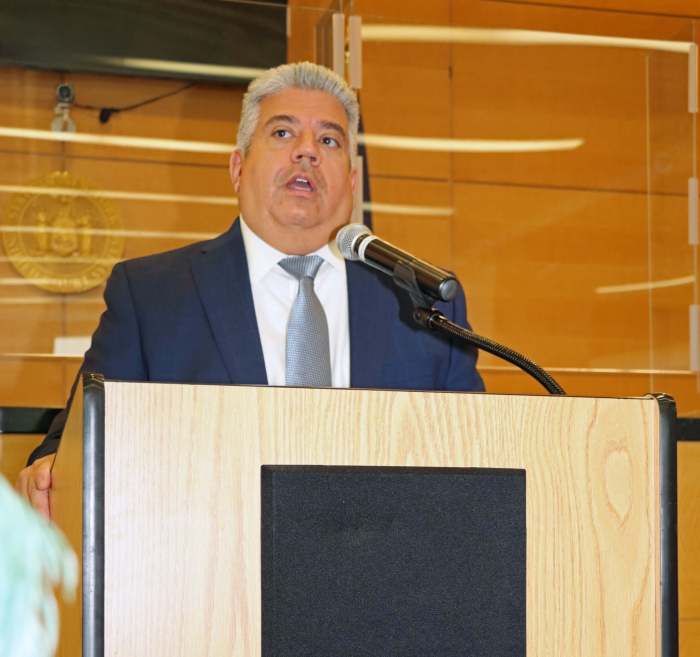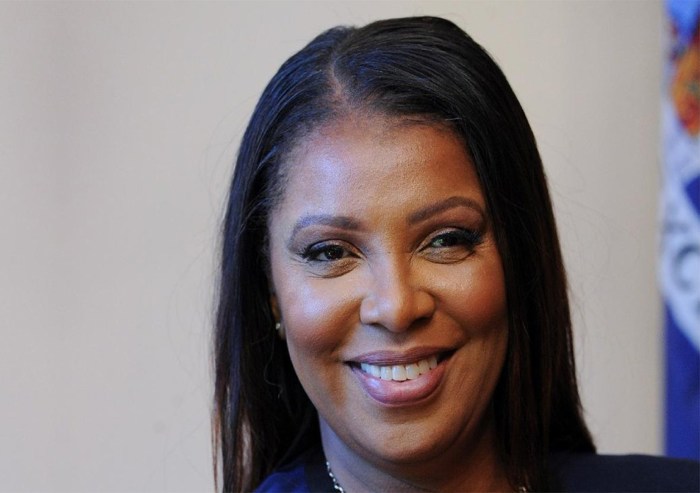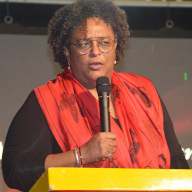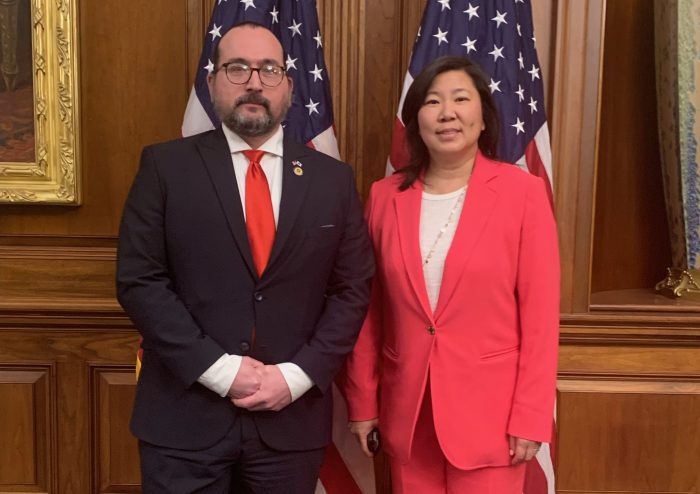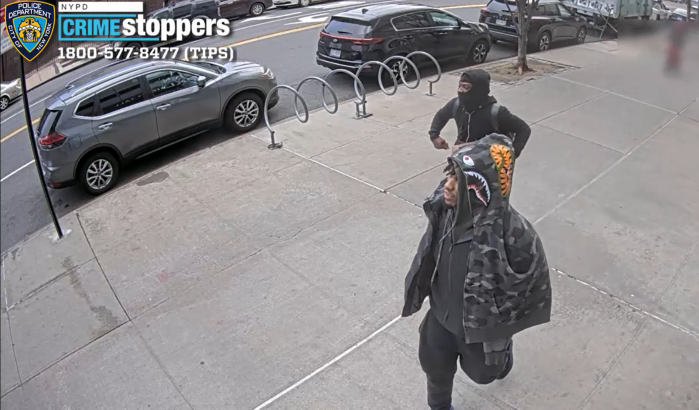Musing that he is always “a bit jittery” whenever he is called to speak in front of distinguished jurists,” a Barbadian-born academic, nonetheless, used the opportunity to inform many Caribbean American jurists in Brooklyn about “the Sides of the Windrush Effect.”
Bedford-Stuyvesant, Brooklyn resident Humphrey A. Crookendale – dean of the School for Public Affairs and Administration (SPAA) at Metropolitan College of New York, was invited by his compatriot Justice Sylvia O. Hinds-Radix, associate justice, New York State Appellate Division, Second Department, to deliver the keynote address at the Caribbean American Heritage Month celebration at Kings County Courts.
Dean Crookendale said he was “honored” to speak on the topic of West Indian immigration.
Like Justice Hinds-Radix, Dean Crookendale is a graduate of Howard University School of Law in Washington, D.C.
He said there were two distinct waves of Caribbean migration: One before World War II and a second after the war.
Regarding the Windrush effect, the scandal, as it is otherwise called, is a 2018 British political scandal concerning people who were wrongly detained, denied legal rights, threatened with deportation, and, in at least 83 cases, wrongly deported from the United Kingdom (UK) by the Home Office, according to Wikipedia, the free online encyclopedia.
It said many of those affected had been born British subjects and had arrived in the UK before 1973, particularly from Caribbean countries, as members of the “Windrush generation,” so named after the Empire Windrush, the ship that brought one of the first groups of West Indian migrants to the UK in 1948.
As well as those who were wrongly deported, an unknown number of migrants were wrongly detained, lost their jobs or homes, or were denied benefits or medical care to which they were entitled, Wikipedia said.
It said a number of long-term UK residents were wrongly refused re-entry to the UK, and a larger number were threatened with immediate deportation by the Home Office.
Linked by commentators to the “hostile environment policy” instituted by resigning British Prime Minister, Theresa May during her time as Home Secretary, the scandal led to the resignation of Amber Rudd as Home Secretary in April 2018, and the appointment of Sajid Javid as her successor, Wikipedia said.
It said the scandal also prompted a wider debate about British immigration policy and Home Office practice.
The scandal came to public attention as a result of a campaign launched by Caribbean diplomats to the UK, British parliamentarians and charities, and an extended series of articles in The Guardian newspaper, Wikipedia said.
Dean Crookendale said a general call went out to the Caribbean for residents of the islands to come and participate in the rebuilding of England after World War II.
He said that, when the Empire Windrush passenger ship docked at Tilbury from Jamaica on June 22, 1948, “it marked the start of the postwar immigration boom, “which was to change British society.”
In that maiden voyage, Dean Crookendale said the Windrush carried 492 migrants, “who were coming to a country promising prosperity and employment.”
“The majority of these immigrants remained to settle permanently, and now form a central part of British society,” he said. “The ship itself made its final voyage in 1954.
“The Windrush generation comprised thousands of Barbadians, Jamaicans, Trinidadians, and others who heeded the call to immigrate between 1948 and 1971 to the colonial motherland to assist in the rebuilding from the devastation caused by the war,” he added.
“Even before the hardline policies of the May government, and the requirement that Windrush descendants formally register to gain legal status, as the early 60s there were drumbeats of intolerance to the immigrant class in the UK,” Dean Crookendale continued.
Speaking about the second wave of significant migration to the United States from the Caribbean, he said the Hart-Cellar Act launched a new wave of immigration for those who sought better opportunities abroad.
“It was especially welcomed, because, in 1962, Great Britain began to systematically block entry of Caribbean immigrants,” Crookendale said. “My mother was one of those immigrants who heeded the call to come and make a better life for herself.
“My mother was a seamstress,” he added. “There was no piecemeal — division of labor assembly production in Barbados. My mom prided herself on being able to make any kind of dress without a pattern. Not so in the garment industry. She was taken aback by the fact that her sole function on the assembly line was to make collars.
“Steady and regular salary was necessary to put my oldest brother through medical school,” Crookendale continued. “The call to come to the US was, indeed, a strong and powerful one. I always say I was an incidental statistic to that large number of immigrants who came immediately after the passage of the Cellar Act.”
Quoting from The Guardian at the time, he said, “’across huge swaths of the European Union, longstanding communities are disappearing and the social burden on the young is becoming unsustainable.’”
“Additionally, the publication has stated that birthrates are falling across Europe, leading to a ‘perfect demographic storm,’” the dean added.
On the other hand, he said New York City is “a remarkably blessed city.”
“Its economic vitality and long-term economic health are, and continue to be, rosy,” Crookendale said. “Economists are very clear on the reasons for the sustained resiliency of the city.
“The one central element at the core of its economic viability is its diversity, and its welcoming arms to immigrants — whether intended or not — sustain our economic well-being,” he added.


